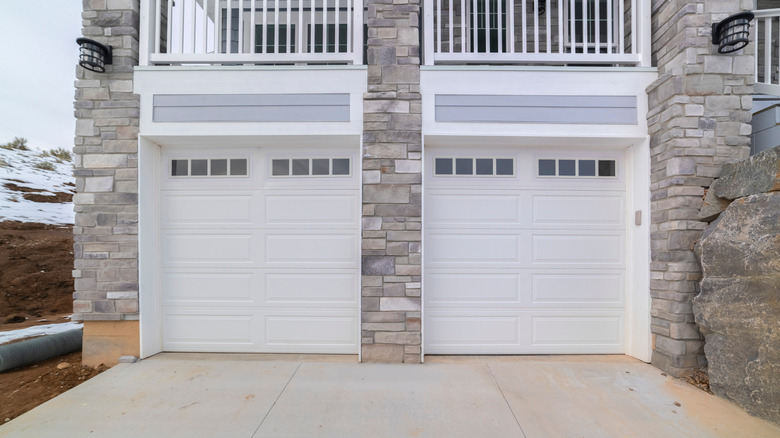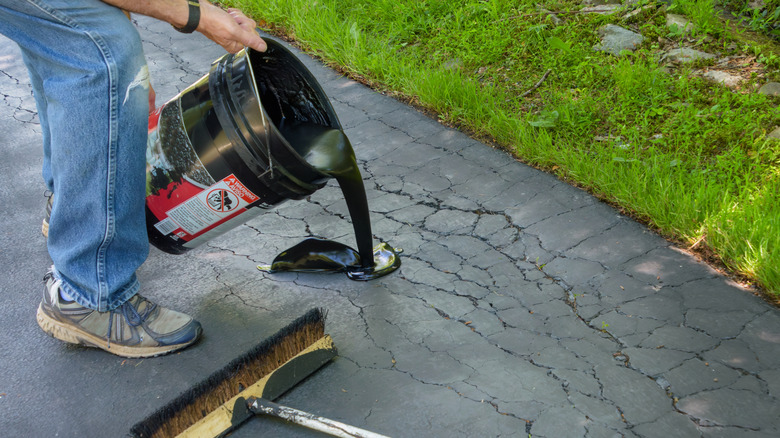Who's Responsible For Repairs On A Shared Driveway Easement?
They say good fences make good neighbors, but the same isn't necessarily true when you and the family next door share a driveway. Even if you've got it pretty well established who parks where, and those occasions where one car is leaving while the other is arriving are rare, wear-and-tear is bound to occur over time. From eroding edges to oil stains, poor drainage, and those small driveway cracks that quickly become a much bigger problem, driveway repairs can be costly. If you share yours, it may not just be the expense that worries you. The awkward conversations, or even arguments, with your neighbor about who's responsible for the fix can be even worse. Do you split the cost 50/50, even if you usually park in your garage and they're always working on their leaky jalopy right outside? Should you call in a professional or try a DIY fix that may save you both some money? Getting on the same page is surprisingly easy as long as you have a clearly outlined shared driveway easement, a written contract that outlines exactly how access, maintenance, and repairs should be handled.
There are a lot of driveway layouts that boost curb appeal, but shared ones usually come about because of economic and space-related reasons rather than aesthetic ones. When homes are built close together, land is subdivided in a way that only allows for a single access point, or narrow lots make a single shared lane the best solution. In these cases, a driveway easement is often put into place. This allows all properties to have legal, long-term, and liability-limited access to the driveway without requiring constant renegotiation.
What you need to know about shared driveway easements
If you notice that your shared driveway needs repairs, the first step is to carefully read over your easement paperwork. You're likely to find that it spells out in detail what type of upkeep is considered routine maintenance, like sealing asphalt or clearing debris, and what's considered a major repair, like resurfacing or addressing structural problems. Legally speaking, responsibility for repairs usually comes down to the easement agreement and any related maintenance agreements. The terms can vary widely, and may split costs based on use, ownership share, or other factors.
For example, if one household has multiple vehicles, uses the driveway daily, or regularly welcomes service trucks, an easement might require them to pay proportionally more than a neighbor who only uses it occasionally. In some cases, you may find a clause in your driveway easement (or HOA rules) that requires neighbors to seek professional repair estimates, use a contractor jointly, and approve the work in writing before any payments are made. Ultimately, who's responsible for repairs on a shared driveway easement depends on the exact wording of the document, its definitions of maintenance, misuse, and shared responsibilities, and, of course, how closely the parties stick to it.
If you don't have a formal driveway easement in place, and costly repairs are needed, you may find yourself trying to get along with difficult neighbors who don't want to contribute their fair share. In these cases, typically, the law makes the primary user responsible for maintenance and repairs. But these situations can be complex, making arbitration or even filing a case in small claims court necessary.

